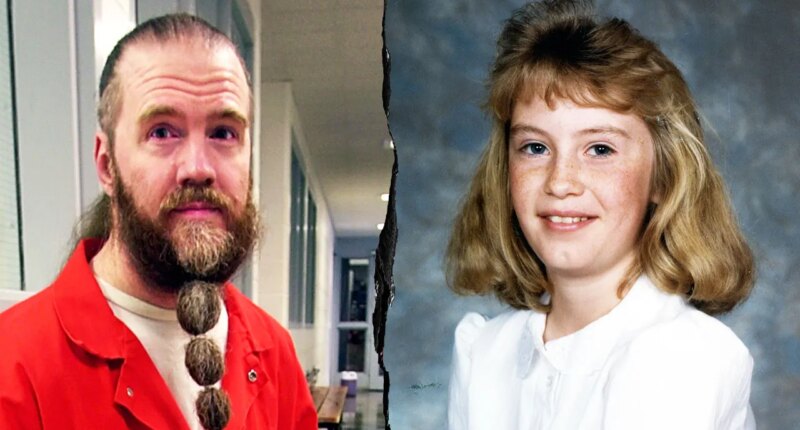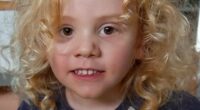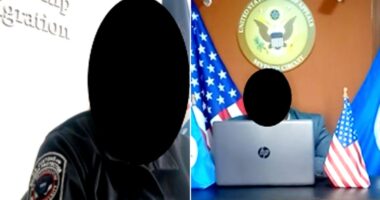Share this @internewscast.com
Rebecca Lafferty forgave her father, convicted killer Dan Lafferty — not to excuse his crimes but to free herself.
Ron Lafferty, her uncle and Dan’s accomplice, was convicted and sentenced to death for the 1984 killings of Brenda Lafferty, his sister-in-law, and Brenda’s 15-month-old daughter, Erica. Dan was convicted of two counts of first-degree murder and sentenced to life in prison. The shocking case was later chronicled in Jon Krakauer’s best-selling book, “Under the Banner of Heaven: A Story of Violent Faith,” and inspired the Hulu series of the same name.
Lafferty is now sharing her experiences in a memoir, “The Lafferty Girl: Surviving Trauma, Abuse, and My Father’s Crime.” The mother of three discusses how she managed years of private shame and how forgiveness led her to find peace.
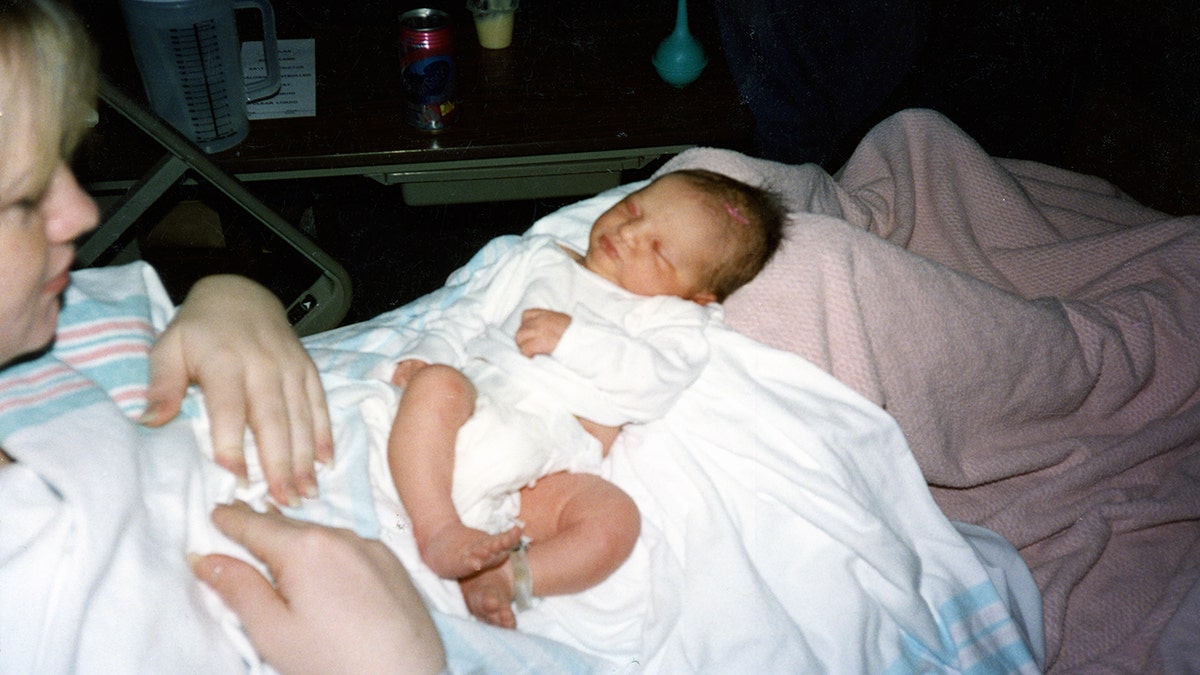
Rebecca Lafferty is seen here in the hospital after giving birth to her daughter Erica in 1996. (Rebecca Lafferty)
“I carried this self-loathing with me throughout my life and into every relationship I entered,” she wrote in her book. “As a result, I wasn’t capable of loving another person or finding a healthy partnership until I first learned to love and forgive myself and those who had hurt me.”
“Despite my father’s choices, I love him and choose to see the good in him because I love and forgive myself for my own choices,” she continued. “I’ve learned that you can still love someone unconditionally, even if you do not agree with or condone their actions.”
Lafferty told Fox News Digital that as a child, she felt “a sense of loyalty” to her father. As an adult, she sees things differently.
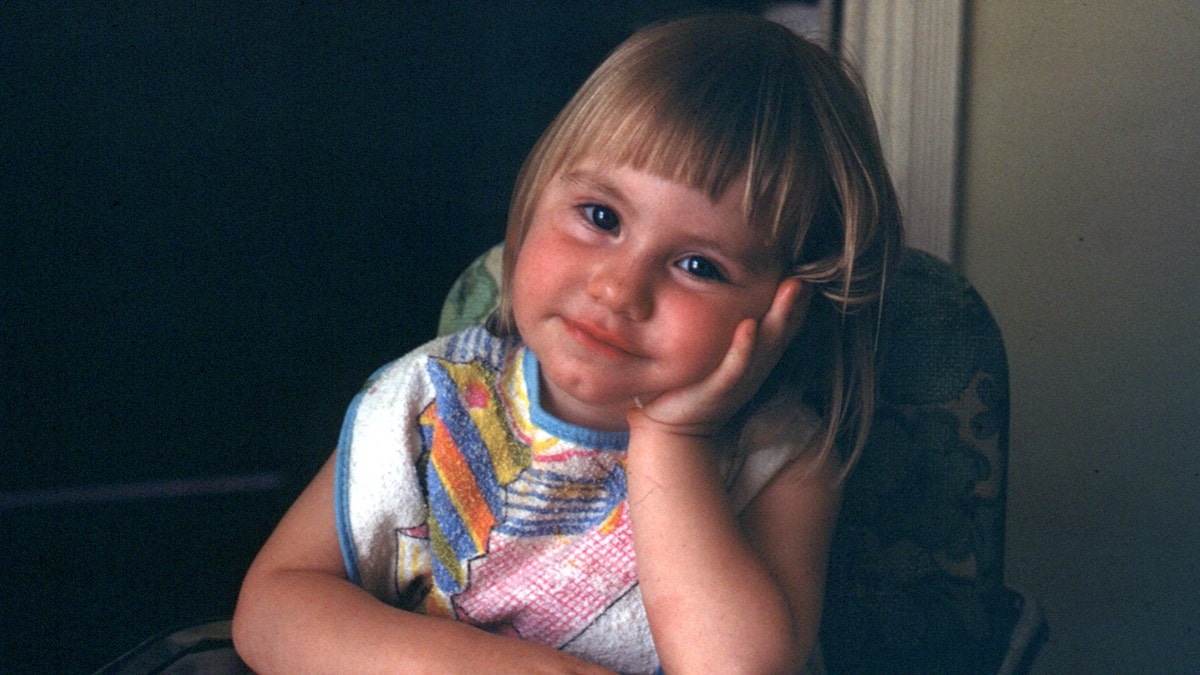
“Me in my high chair, age two, looking at my dad,” Rebecca Lafferty wrote in her book. (Rebecca Lafferty)
“I see … with a greater understanding of what my father’s upbringing was and what beliefs he has that created him to make the choices that he has,” she said. “Having that greater understanding allows me to have compassion and, at the same time, not agree with what he did.”
Lafferty said that for families like hers, who found themselves thrust into the spotlight, there’s resilience.
“Every choice we make has effects,” she said. “I want peace. I want to have normal relationships. I want to have a normal family. I do not want to keep repeating this generational trauma.”
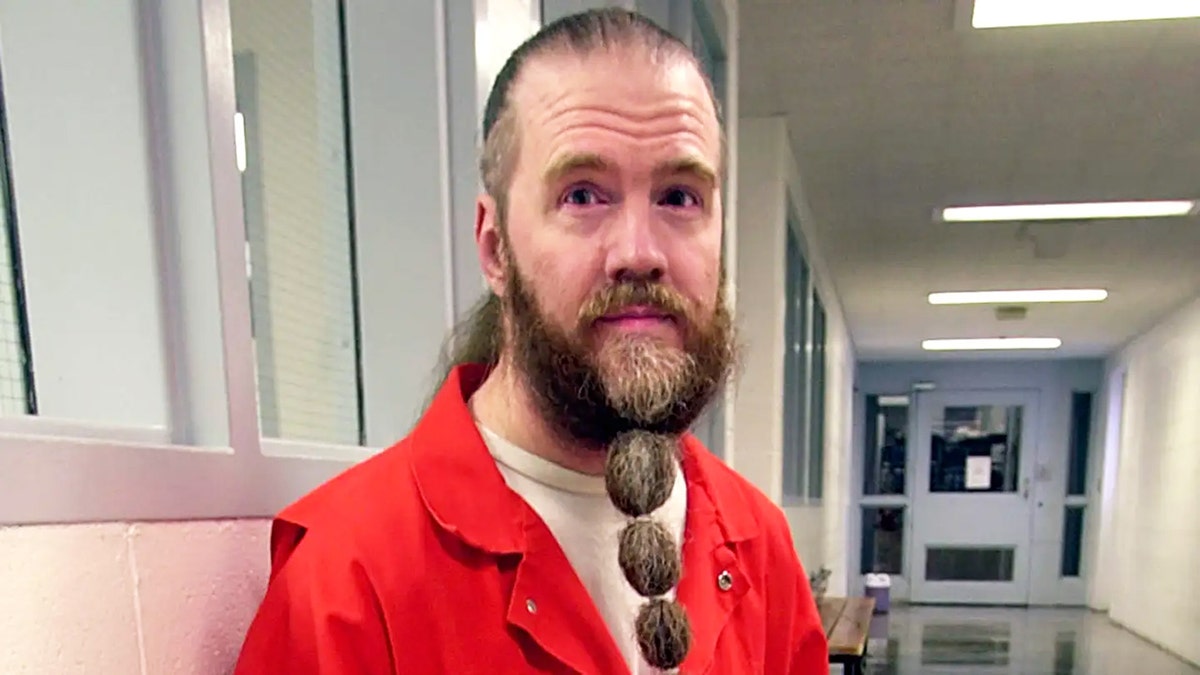
Dan Lafferty is seen here at Utah State Prison on June 30, 2003. (Douglas C. Pizac/AP)
Today, Lafferty helps other women like her heal their emotional wounds as a hypnotherapist.
Randomly, she’d get a phone call from Dan. But after those 15 minutes, she wouldn’t know when she’d hear from him again.
“I am at the most peaceful I’ve ever been,” said Lafferty. “I feel like I’ve made amends to every aspect of my life. It’s really helped me to be a better listener and have compassion in my life — for my kids, for myself. Addressing my trauma really is freeing. It’s a peace or freedom that surpasses all understanding. And I never knew what that felt like. All I knew was that my nervous system was on all the time. I felt like something was out to get me. But peace is possible.”
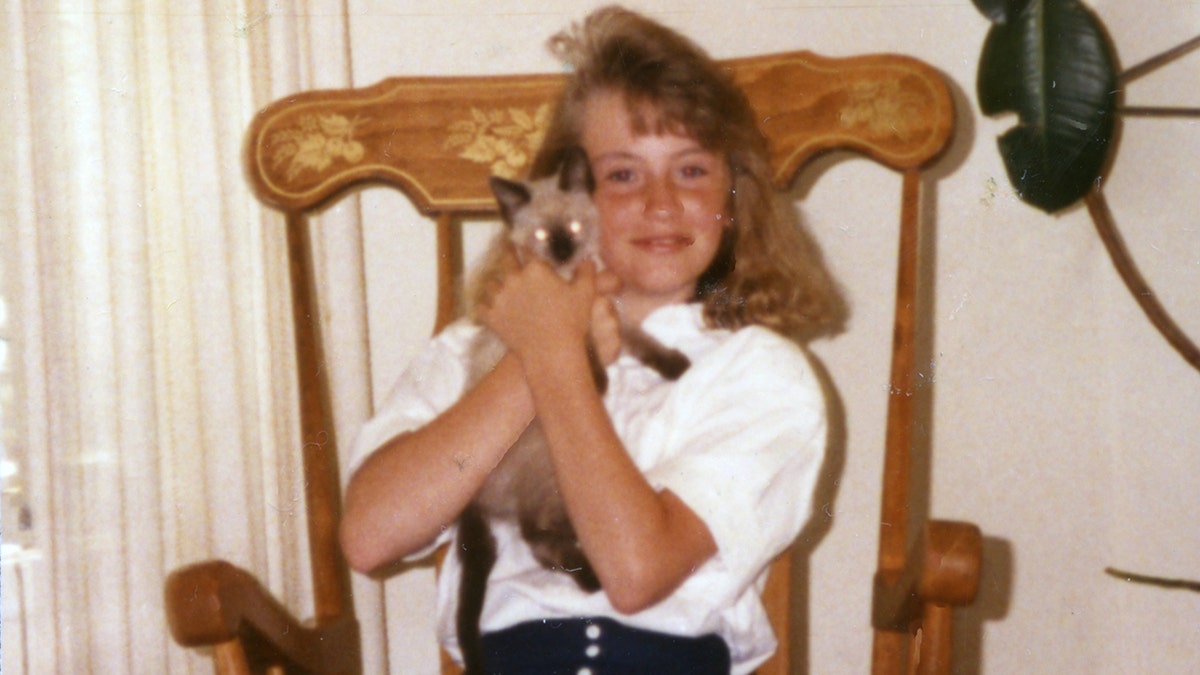
“Me, age 11, holding our cat, Chee-Chee, in the front room of our Pond Town Fort home,” Rebecca Lafferty wrote. (Rebecca Lafferty)
Lafferty feels gratitude for the chance to keep learning about Brenda’s life, even decades later. She also hopes that by speaking out, others in similar circumstances will tell their stories without fear.
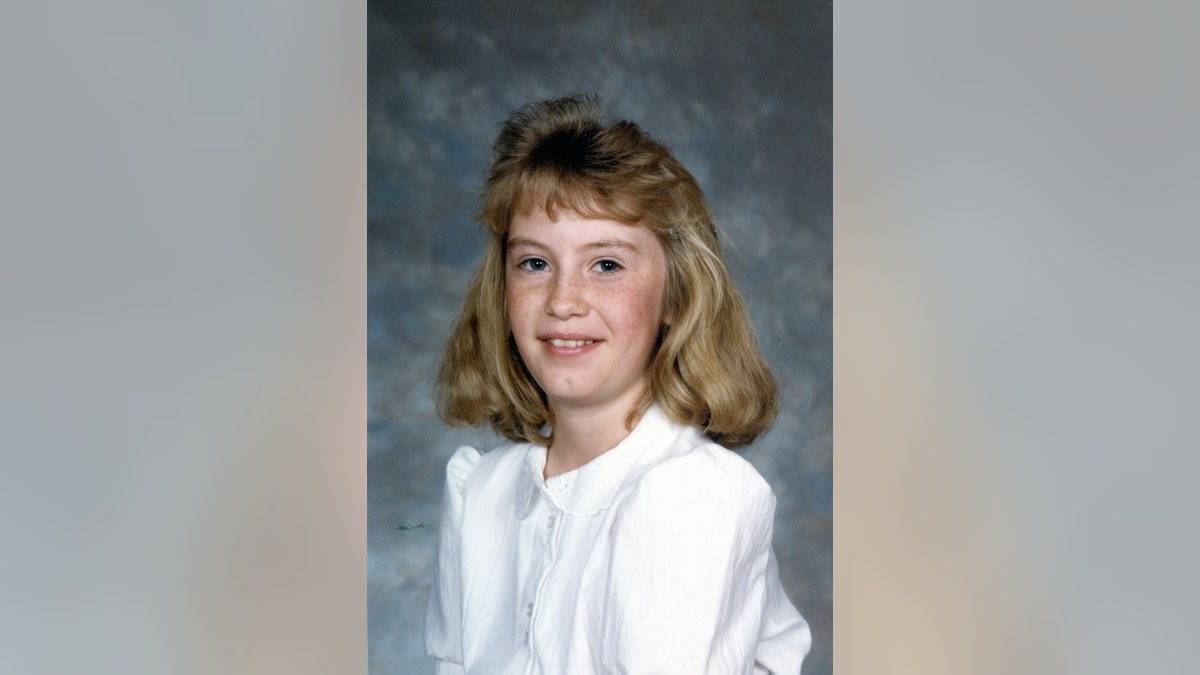
Rebecca Lafferty’s school photo from fourth grade. (Rebecca Lafferty)
“There’s hope in healing,” she said.
